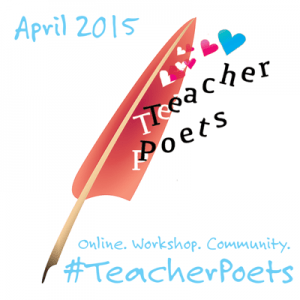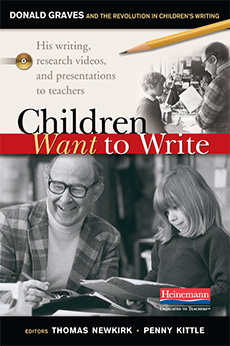I tweeted yesterday that I stumbled upon inspiration. Deep in the murky weather, just as schools across the country are marching towards standardized testing season (here in New York the first round begins on Monday), I – like I’m sure many of us – have been feeling a bit gloomy.
One piece of inspiration was when my friend Monique tweeted with the hashtag #testprepdetox.
Yes!
Test Prep Detox!
The other is that I opened my subscription to a professional magazine and right in the center was a fold out poster about poetry month.
Yes!
Poetry!
Writing Poetry in the Company of Others
A little known fact about me is that I was a few credits shy of double majoring in creative writing, poetry to be exact. I studied with incredible poets – Quan Barry, Aimee Nezhukumatathil, and others (I’ve even been in the same room as MacArthur Fellow–“Genius Award” recipient–Alice Fulton. Amazing.).
While this English major eventually turned, instead, to education. The process of being in adult writing workshops, in the company of other writers, to this day inspires my work.
“Workshopping” a poem, story, or play is similar to, but not exactly the same as, a school-based “writing workshop.” It does, however, shares similar threads.
It’s a representation of what the writer-reader relationship really is… you write but then turn over everything to your readers, they now make their own ideas. When workshopping a poem you get the unique opportunity of being able to hear your readers (other members of your workshop) and then make revisions with those voices in mind. You learn so much about how your words are received and how to make your purpose and voice clearer.
I found those times were inspiration packed, soul-filling, and reflective. I think it’s a big reason why I love writing and studying responsive writing instruction with educators.
An Invitation to Our Own Poetry Workshop
This April, in honor of #testprepdetox and Poetry Month, I’m organizing a four-session, online, adult poetry workshop I’m calling TeacherPoets.
Here is a downloadable flyer: TeacherPoets Announcement
Who Should Join? Educators and authors involved in K-12+ education interested in writing and talking about your own poetry.
Be ready to write poems, share them openly with others, revise with feedback, and share your passions and talents with fellow educators.
We’ll use the hashtag #TeacherPoets and here’s a button you’re welcome to add to your social media:

What We’ll Do
From 11:00AM-Noon EST on 4 Saturdays:
- April 12,
- April 19,
- April 26,
- and May 3
we’ll join together in an online poetry workshop.
We will not be focusing on the teaching of poetry to students, per se.
Instead, our focus will be on fostering our own adult writing lives through weekly writing exercises, sharing of our work, and the hallmark of our sessions—interactive feedback conversations called “workshops.”
These sessions are designed to keep us actively writing, exploring, reflecting, and, above all, inspired.
We’ll be using Google’s Hangouts on Air – their newest incarnation of Hangouts. It’s like a Skype call only on steroids. As in Oprah has done one.
How to Join
Involvement is free. I’m donating my time because I love the power of poetry to help us reflect and connect and because I need this battery recharge as much as you do!
There are two ways to join:
- Watch the video streams live and tweet along with us. I’ll post how during the week of April 7.
or
- Apply to be in the Live Group. You’ll be broadcasting live (from the comfort of your laptop or device) with me and fellow TeacherPoets! During one of the 4-weeks a poem you submit will be workshopped live, receiving feedback both from our Live Group and online viewers. (Did I say how excited I am!)
Google has strict limits on the number of on-camera participants, so to be a Live Group member please apply.
The application will go live THIS WEDNESDAY AT 10AM EST on my blog and will remain live for just a few days. Application reviews will be done on a first come basis.
Here is the downloadable flyer once again: TeacherPoets Announcement
I can’t wait! Let’s write, reflect, and rejuvenate together!











